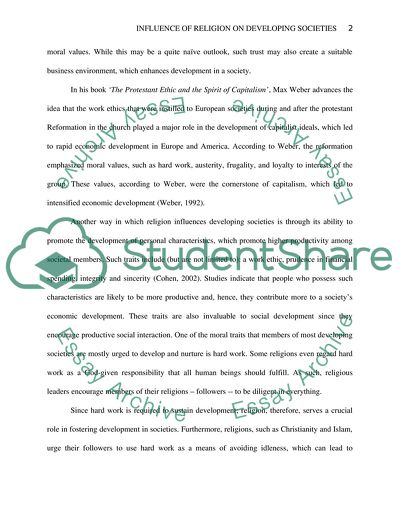Cite this document
(“Influence of Religion on Developing Societies Research Paper - 1”, n.d.)
Retrieved de https://studentshare.org/religion-and-theology/1587310-influence-of-religion-on-developing-societies
Retrieved de https://studentshare.org/religion-and-theology/1587310-influence-of-religion-on-developing-societies
(Influence of Religion on Developing Societies Research Paper - 1)
https://studentshare.org/religion-and-theology/1587310-influence-of-religion-on-developing-societies.
https://studentshare.org/religion-and-theology/1587310-influence-of-religion-on-developing-societies.
“Influence of Religion on Developing Societies Research Paper - 1”, n.d. https://studentshare.org/religion-and-theology/1587310-influence-of-religion-on-developing-societies.


